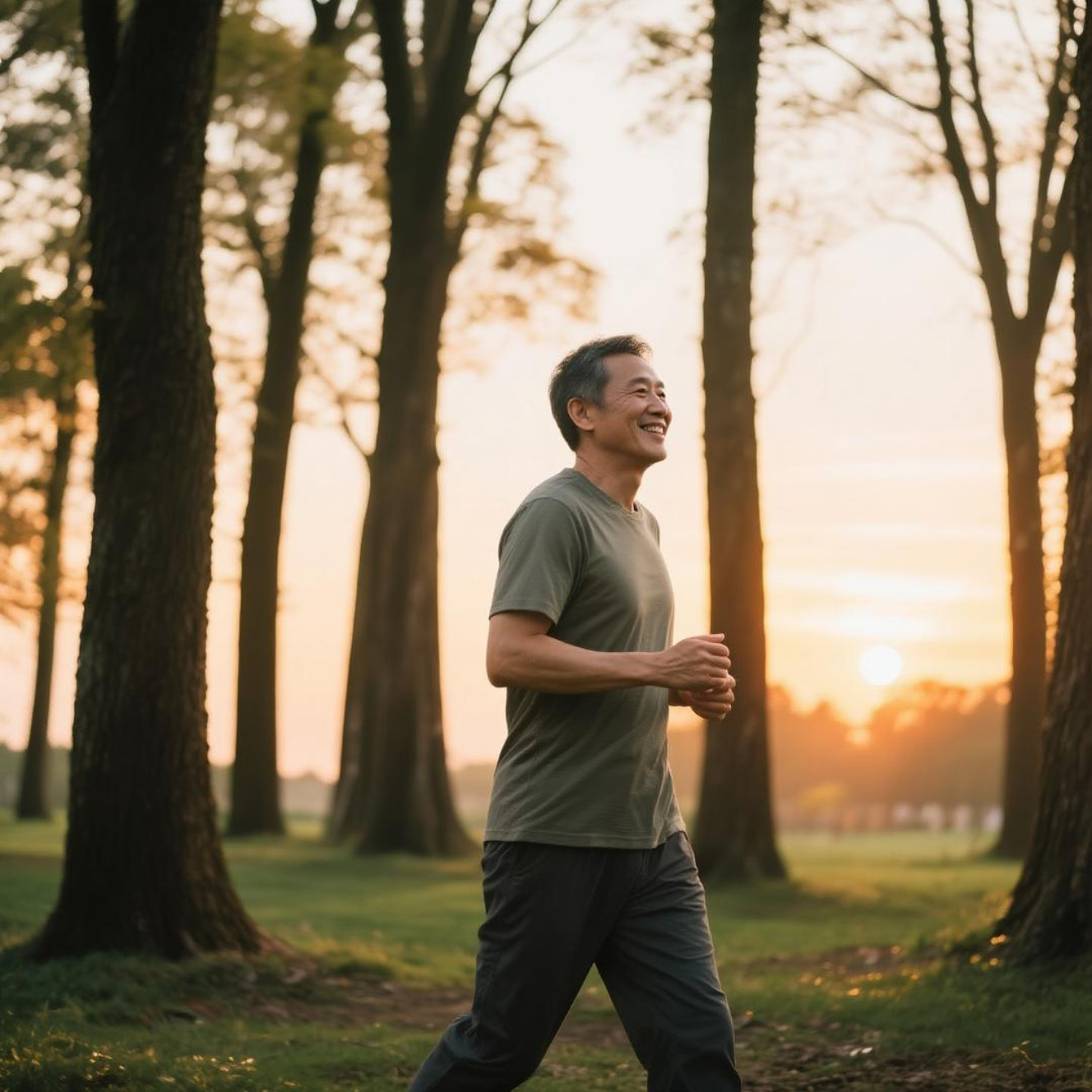Physical exercise and mental health form a powerful combination to combat daily stress. Moving your body could be the antidote you’re looking for right now.
I’ve personally felt the benefits: less anxiety, more mental clarity, and greater energy to face challenges. Let’s get straight to the point: you’ll understand why moving is essential.
Ready to discover how simple acts like walking or stretching can transform your mood and well-being? This article is for you if you want to upgrade your quality of life.
The Impact of Physical Exercise on Mental Health
Physical exercise and mental health improve emotional balance. When we exercise, our body releases endorphins and serotonin, which induce feelings of well-being and reduce cortisol levels—the stress hormone.
I’ve noticed that on training days, I feel calmer and more centered. My mind slows down, and negative thoughts seem more distant. This happens because exercise acts as a natural emotional regulator.
Even on low-energy days, a brief stretch or a 10-minute walk makes a real difference in my mood. It doesn’t need to be intense; it just needs to be consistent.
How Movement Affects the Brain
Movement doesn’t just improve your body. It strengthens your brain. Aerobic exercises stimulate substances that protect neurons and improve cognitive functions like memory, attention, and decision-making.
When I run or cycle, I feel my mind sharpening. It’s as if my thoughts become more organized, and solutions come more easily. This even helps me at work.
Furthermore, physical exercise reduces exaggerated stress responses. The nervous system learns to respond more balanced to everyday challenges, preventing emotional outbursts.
Physical Exercise and Mental Health: Proven Benefits
Physical exercise and mental health promote a range of recognized and proven benefits:
- Reduction of depression and anxiety: any form of physical activity reduces symptoms of these disorders.
- Improved sleep and mood: regular walks help regulate the sleep cycle and fight insomnia.
- Cognitive protection: exercising from middle age reduces the risk of neurodegenerative diseases.
I find that my mornings are more productive, and I have more clarity throughout the day, thanks to this body-mind combo. In fact, I notice I have more patience with situations that used to irritate me easily.
With continuous practice, these benefits stop being temporary and become part of your natural state of well-being. It’s as if your mind has more “reserve” to handle the ups and downs of life.
Types of Physical Activities that Improve Mental Health
For those seeking emotional balance, certain activities stand out:
• Aerobic exercises (walking, running, cycling): improve mood, reduce stress, and strengthen mental health.
• Strength training: helps reduce depressive symptoms and boosts self-esteem.
• Light activities (yoga, stretching): ideal for those dealing with anxiety or insomnia.
You don’t have to choose just one type. Mixing modalities can be more fun and effective. For example, I do weight training three times a week and complement it with yoga on Sundays.
If you prefer something more playful, you might consider dancing or recreational sports like volleyball or swimming. The important thing is to find pleasure in movement, not just obligation.
How to Include Physical Exercise in Your Routine Without Struggling
I know, adults aged 30–50 often have tight schedules. Therefore, the key is to start slow and make movement a pleasurable habit:
- Set real goals – how about 20 minutes of walking three times a week?
- Choose activities you enjoy – if music motivates you, try dancing. If you prefer silence, walk in the park.
- Use small reminders – alarms, apps, post-its.
- Track gains – mood, energy, sleep, focus. This helps maintain motivation.
A tip that worked for me was associating physical activity with another already established habit. For example: right after breakfast, I put on my sneakers and walk for 15 minutes. This association helps me stay consistent.
Another valuable tip: invite someone to join you. Walking with a friend, partner, or family member makes it lighter and even fun. You create connection and stay committed.
Move: Small Changes, Big Results
Small steps make a big difference. Walking more, taking the stairs, replacing the elevator with a walk—these choices make an impact.
I started by taking the stairs and walking farther: it seems small, but the impact was huge. The body responds, and your mood thanks you.
Over time, these choices add up. Ten minutes here, fifteen there… and before you know it, you’re moving your body almost every day without needing major changes to your routine.
And remember: results come with consistency—it’s not a 100-meter sprint, but a marathon of well-being. The secret lies in daily repetition, not sporadic intensity.
A New Chapter in Your Mental Health
Do you want to transform fatigue and stress into energy and balance? I’m with you on this journey. Physical exercise and mental health are among the most effective and accessible ways.
Choose a movement you enjoy, go at your own pace, and see the transformation. Your mood, sleep, focus, and even memory will thank you. Shall we go together? Your well-being is just one step away—literally.
And if you think you’re starting late, know this: it’s never too late to take care of yourself. Your body and mind will thank you for every step.
